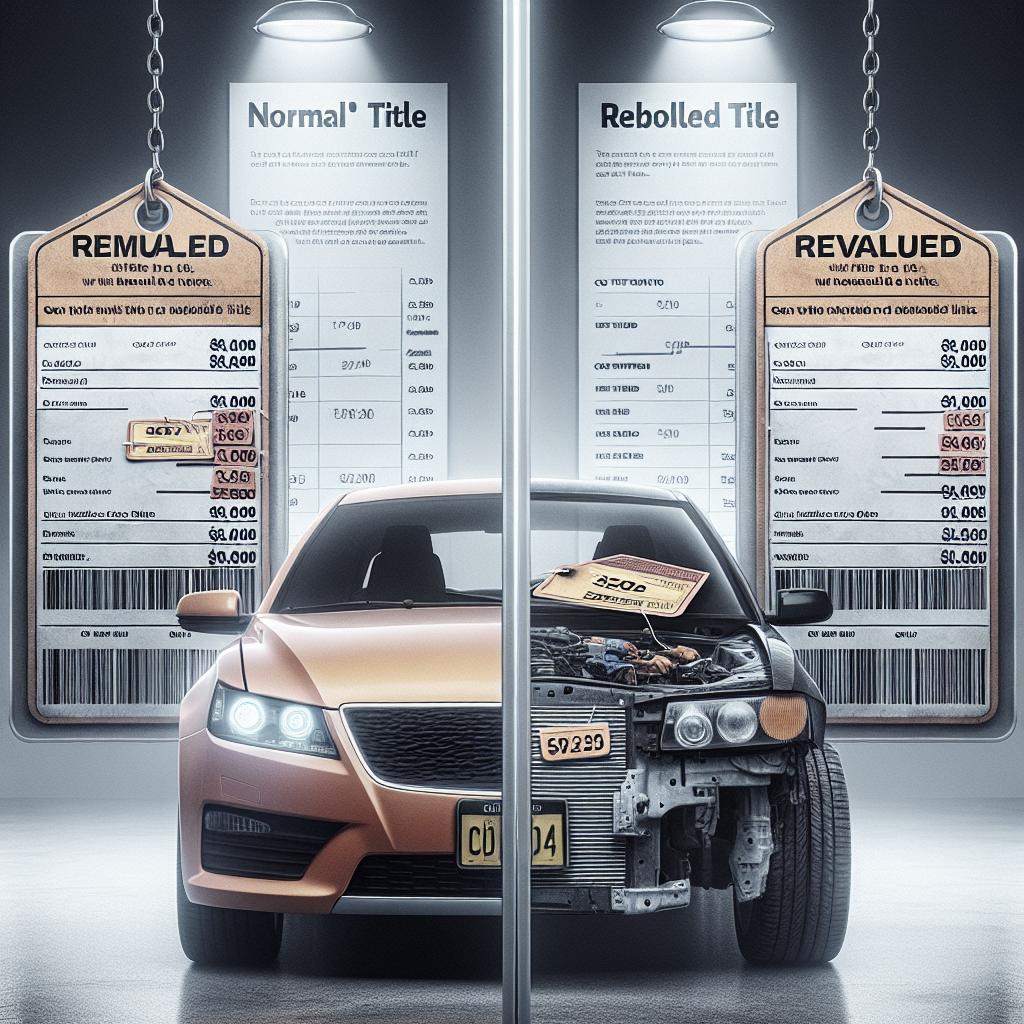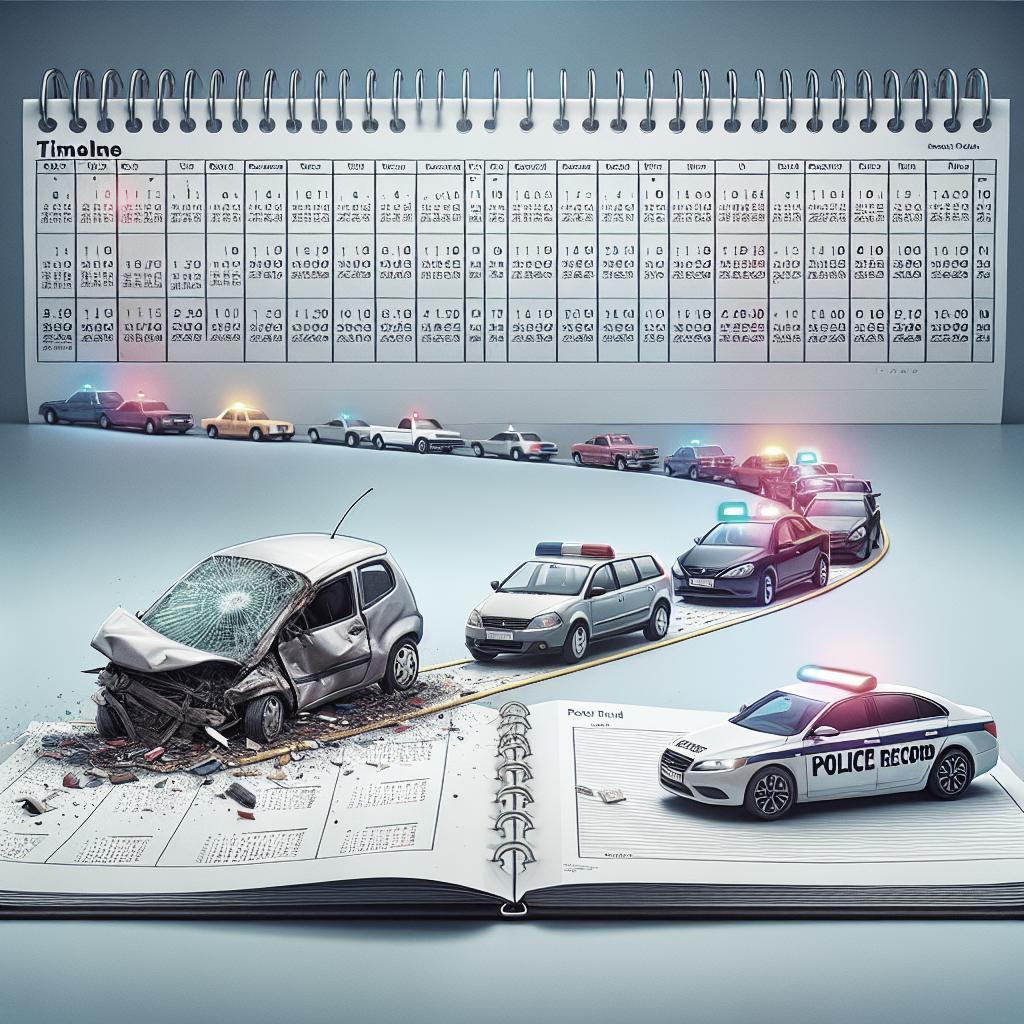html
How Much Does a Rebuilt Title Devalue a Car?
When shopping for used cars, one can often encounter vehicles with rebuilt or salvage titles. Understanding these terms is crucial, as they significantly affect a car’s value. This article delves into the nuances of rebuilt and salvage titles, exploring the differences and implications for potential buyers. We will weigh the advantages and disadvantages of purchasing vehicles under each category and discuss insurance considerations. Furthermore, this guide provides insights into deciding if a rebuilt title car suits your needs and warns against title washing scams, ultimately equipping you with the knowledge to shop for used cars confidently.
1. What’s the difference between a rebuilt title and a salvage title?
A salvage title is issued when a vehicle has been deemed a total loss by an insurance company, meaning the costs of repairs exceed a certain percentage of the car’s value. This label indicates that the car has been significantly damaged and is no longer roadworthy in its current state. Salvage titles are usually issued after incidents like severe accidents, natural disasters, or vandalism.
On the other hand, a rebuilt title is assigned once a previously salvaged vehicle has been repaired and inspected to ensure it meets roadworthy standards. Essentially, a rebuilt title means the car was once written off as a loss but has since been restored to a functional condition. While a salvage title suggests a vehicle in need of significant repairs, a rebuilt title indicates a repaired vehicle that’s ready for use.
2. What is a rebuilt car and what does a rebuilt title mean exactly?
A rebuilt car refers to a vehicle that once carried a salvage title but has undergone extensive repairs and passed inspections to ensure its safety and operability. These cars typically require substantial work, including mechanical fixes, cosmetic improvements, and safety evaluations, before they can attain a rebuilt title.
A rebuilt title signifies that a car, once damaged beyond the thresholds deemed economical for repair, has been restored to a condition where it can be legally driven on public roads. Obtaining this title involves a thorough assessment by regulatory authorities and is often noted in the vehicle’s history report—a factor buyers must consider when evaluating such purchases.
3. What are the pros and cons of buying a car with a salvage title?
Purchasing a salvage title car can offer significant cost savings, as these vehicles are usually sold at deep discounts compared to their market value. This can be an attractive option for those skilled in automotive repairs or looking for project cars they can restore themselves, potentially gaining a drivable vehicle at a fraction of the cost.
However, there are notable risks associated with buying a car with a salvage title. These vehicles often come with hidden mechanical issues that can be costly to repair, and potential safety concerns should not be overlooked. Furthermore, resale value is typically low, and it might be challenging to find insurance covers, which can deter prospective buyers.
4. What are the pros and cons of buying a car with a rebuilt title?
For some buyers, a rebuilt title car strikes a favorable balance between risk and reward. These cars are usually cheaper than those with clean titles but more reliable than salvage title vehicles. Buyers might find a great deal on a car that, with correct repairs, performs comparably to a full-priced counterpart.
Conversely, purchasing a rebuilt title car involves certain downsides, primarily related to long-term value retention and potential ongoing repairs. Since these vehicles have a history of significant damage, they might not hold value well or attract buyers in the future. It’s also crucial to ensure that repairs were made to a high standard to avoid future issues.
5. Insurance on rebuilt title cars
Obtaining insurance for a rebuilt title car can be more complicated than for those with clean titles. Insurers view these cars as higher risk due to their history of damage and potential for hidden defects, often resulting in higher premiums or limited coverage options.
However, it is not impossible to insure a rebuilt title vehicle. Prospective buyers should shop around to compare policies and ensure they fully understand any coverage limitations. Comprehensive research and communication with insurers can help secure adequate insurance at more competitive rates.
6. How to determine if a rebuilt title car is right for you!
Deciding whether to purchase a rebuilt title car involves a careful assessment of your needs, budget, and risk tolerance. Consider whether you’re comfortable with a car that might have had significant previous damage and if you’re financially prepared for potential repairs and higher insurance costs.
It’s also wise to have a trusted mechanic inspect the vehicle before making a purchase to confirm the quality of repairs. Ensure that all necessary documentation is available and clear of discrepancies, helping guarantee that the vehicle has been competently restored and justifying its rebuilt status.
7. Don’t get scammed by title washing
Title washing refers to the illegal process of altering a vehicle’s title status to remove its salvage or rebuilt history. This practice can deceive buyers into purchasing vehicles at inflated prices without knowledge of their true condition.
To avoid falling victim to title washing scams, buyers should run a comprehensive vehicle history check through reputable services, ensuring transparency about the car’s past. Additionally, purchase from reputable dealers who can provide full documentation and transparency about the vehicle’s title status.
8. Shop for used cars with peace of mind.
Shopping for a used car, whether it has a rebuilt or salvage title, requires careful consideration and informed decision-making. Understanding their implications, doing thorough research, and consulting with professionals are key to a successful purchase.
While rebuilt title vehicles present both opportunities and challenges, approaching the process with diligence and knowledge can result in a satisfactory purchase. From evaluating title histories to securing insurance and performing inspections, these steps are crucial in ensuring your peace of mind when acquiring a used car.
Final Thoughts
| Aspect | Salvage Title | Rebuilt Title |
|---|---|---|
| Definition | High damage, not roadworthy | Repaired and inspected for road use |
| Pros | Cheaper price, ideal for DIY repairs | Cost-effective, reliable with proper repairs |
| Cons | Potential hidden flaws, difficult insurance | Resale challenges, unknown repair quality |
| Insurance | Limited options, higher premiums | Possible, but varies with providers |
| Buyer Caution | Inspect thoroughly for unseen damages | Verify repair quality and documentation |


